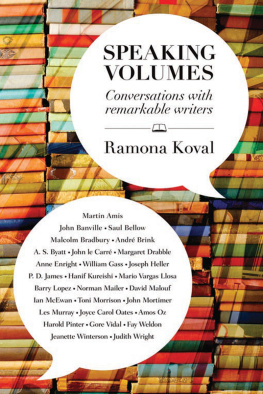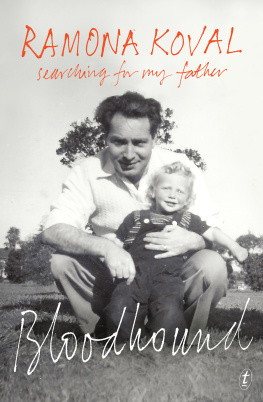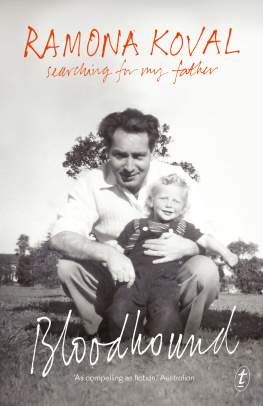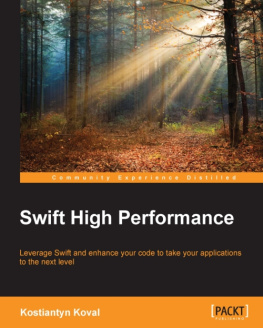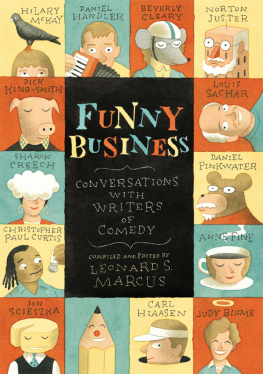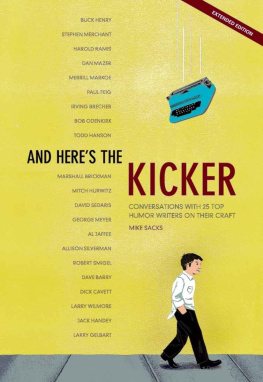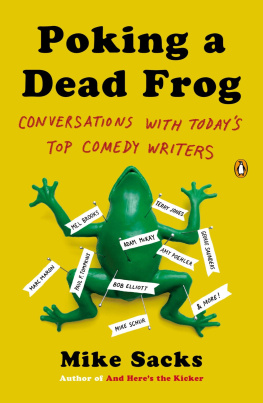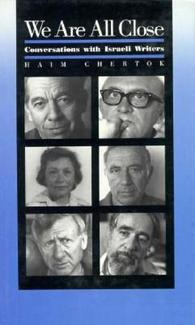Koval - Speaking Volumes Conversations with Remarkable Writers
Here you can read online Koval - Speaking Volumes Conversations with Remarkable Writers full text of the book (entire story) in english for free. Download pdf and epub, get meaning, cover and reviews about this ebook. City: Melbourne;Victoria, year: 2010;2013, publisher: Scribe Publications Pty Ltd., genre: Art. Description of the work, (preface) as well as reviews are available. Best literature library LitArk.com created for fans of good reading and offers a wide selection of genres:
Romance novel
Science fiction
Adventure
Detective
Science
History
Home and family
Prose
Art
Politics
Computer
Non-fiction
Religion
Business
Children
Humor
Choose a favorite category and find really read worthwhile books. Enjoy immersion in the world of imagination, feel the emotions of the characters or learn something new for yourself, make an fascinating discovery.
Speaking Volumes Conversations with Remarkable Writers: summary, description and annotation
We offer to read an annotation, description, summary or preface (depends on what the author of the book "Speaking Volumes Conversations with Remarkable Writers" wrote himself). If you haven't found the necessary information about the book — write in the comments, we will try to find it.
Koval: author's other books
Who wrote Speaking Volumes Conversations with Remarkable Writers? Find out the surname, the name of the author of the book and a list of all author's works by series.
Speaking Volumes Conversations with Remarkable Writers — read online for free the complete book (whole text) full work
Below is the text of the book, divided by pages. System saving the place of the last page read, allows you to conveniently read the book "Speaking Volumes Conversations with Remarkable Writers" online for free, without having to search again every time where you left off. Put a bookmark, and you can go to the page where you finished reading at any time.
Font size:
Interval:
Bookmark:
Scribe Publications
SPEAKING VOLUMES
Ramona Koval presents The Book Show on ABC Radio National, heard weekdays across Australia, and podcast globally. She makes documentary features for radio, and has written newspaper features and columns on issues of the day. Transcripts of her interviews have been published in international newspapers, magazines, and in digital form. She has been invited to interview writers at literary festivals in Edinburgh, Cheltenham, Montreal, Berlin, and all over Australia.
She is the author of a novel, Samovar, and four books of non-fiction, including a Jewish cookbook. She has worked as an academic at RMIT University and the University of Melbourne, and before that as a microbiologist and geneticist.
For Dave

Scribe Publications Pty Ltd
PO Box 523
Carlton North, Victoria, Australia 3054
Email: info@scribepub.com.au
First published by Scribe 2010
Copyright Ramona Koval 2010
All rights reserved. Without limiting the rights under copyright reserved above, no part of this publication may be reproduced, stored in or introduced into a retrieval system, or transmitted, in any form or by any means (electronic, mechanical, photocopying, recording or otherwise) without the prior written permission of the publisher of this book.
Typeset in 11.75/14.6 pt Dante by the publishers. Printed and bound in Australia by Griffin Press. Only wood grown from sustainable regrowth forests is used in the manufacture of paper found in this book.
National Library of Australia
Cataloguing-in-Publication data
Koval, Ramona.
Speaking Volumes: conversations with remarkable writers.
Rev. and updated ed.
9781921753329 (e-book.)
9781921640612 (pbk)
1. Authors-Interviews. 2. Authorship-Literary collections.
www.scribepublications.com.au
I was shaking his hand. I was smoking his cigar, and I was hearing him talk this man I had learned to love and admire fourteen thousand miles away.
Reading his books, I had striven to get an idea of his personality, and all my preconceived notions were wrong and beneath the reality. Blessed is the man who finds no disillusion when he is brought face to face with a revered writer.
Rudyard Kipling on interviewing Mark Twain, 1889
Why do I refuse to be interviewed? Because it is immoral! It is a crime, just as much of a crime as an offence against my person, as an assault, and just as much merits punishment. It is cowardly and vile. No respectable man would ask it, much less give it.
Rudyard Kipling (after 1892) on being interviewed, according to his wife
There are moments in an interview when you hold your breath, not sure if the next move will bring public humiliation or elated relief. Televised surgery comes to mind, where the surgeons deft moves are exposed to the public gaze: will they gasp with delight at your skill, or will they watch your patient bleed to death? Perhaps the patient will even rise up from the operating table, wrestle the scalpel out of your hands, and cut your throat.
When I interviewed Gore Vidal in Edinburgh in 2001, I was acutely aware that I was speaking to one of the worlds most brilliant, witty and, possibly, scathing men. I was nervous, until Vidal spoke about a quote used by Oklahoma bomber Timothy McVeigh to the judge who was about to sentence him to death. Vidal said that he couldnt remember the quote exactly, and I realised I had written it that morning on the research papers that Id prepared for the interview. I passed my note over to him, not sure that he would welcome it, and I was relieved to hear him say, Thank you, you must follow me around more often! The audience laughed, and I laughed and he laughed, and things settled down for a fine conversation.
The following year, on the same stage, I interviewed Vidals fellow American Joyce Carol Oates. I was very enthusiastic about her work, and marvelled at her talent. But it seemed that almost nothing I asked elicited a response from her that wasnt short, rather dismissive, or even sour. I ploughed on, knowing that I had read almost all her work, and determined that she should at least engage with me. Finally, when I mentioned the books Black Water and The Rise of Life on Earth, she exclaimed, Youve read those? Well, Im going to give you a medal. Nobody has read those books, and I knew that I was finally going to have the conversation I had prepared for.
There is a small group of writers who never give interviews, or who insist on rigid rules about correcting the transcript, or who only consent to written interviews by email. For example, Vladimir Nabokov objected to the bogus informality of the interview, and J. M. Coetzee said that he objected to an exchange with a complete stranger, yet a stranger permitted by the conventions of the genre to cross the boundaries of what is proper in conversation between strangers. You will find none of them here. These interviews, for broadcast and performance, are with writers who are happy to engage with a good reader, an intelligent audience, and the world at large.
These are writers who enjoy coming out of the legendary solitary room and speaking about what it was that compelled them to stay there. Some consider the role of the writer to be that of a public intellectual, and enjoy discussing their ideas with others. For other writers, the interview might be one of the only ways they can make a direct statement about the world, or impart what they have learned to a large audience or perhaps they simply enjoy the attention. Whatever the attitude to the interview, it can get under the skin of some writers, as evidenced by the parodies of the interview form by writers such as Norman Mailer, Gore Vidal, and Evelyn Waugh, who all wrote mock interviews, or even interviewed themselves.
What is a literary interview? It is not a casual conversation, nor is it a simple exposition of notable features of the authors books. It is a theatre piece, a public accounting, a surgical probing, and a highly dangerous act with all kinds of difficult possibilities. How dare the interviewer ask such personal questions? But what does the writer expect, having laid the soul bare in the very essence of the work? And, after all, many of the following interviews were done in staged settings broadcast studios, in front of audiences at literary festivals, or in the writers own homes so they were hardly ambushes. Consent is implied the moment the writer sits in the chair and faces the interviewer.
One of the earliest recorded literary interviews was from 1618, when Drummond of Hawthornden interviewed Ben Jonson. Drummond described his subject as a great lover and praiser of himself; a condemner and scorner of others; given rather to lose a friend than a jest; ... oppressed with fantasy, which hath ever mastered his reason. Most high profile writers today have learned not to be so openly bombastic from years of exposure to images of themselves in the electronic media and press. Since 1618, audiences have continued to enjoy seeing and hearing the writers who have given them hours of pleasure, or at least something meaty to think about.
Every international literary figure who has spoken to me has been interviewed hundreds of times by others, so its a point of pride to make the interview memorable, to stimulate with either the questions or the approach so that the writer will have to think on their feet and not deliver partially scripted answers to questions. There is the moment in which you both either agree to take part in the performance of intimacy or not although with some writers, its like a fencing match where a test of wills and power is engaged in. The judicious use of silence comes into play here, and it is telling who is the first to impose it, and then who is the first to break it.
Next pageFont size:
Interval:
Bookmark:
Similar books «Speaking Volumes Conversations with Remarkable Writers»
Look at similar books to Speaking Volumes Conversations with Remarkable Writers. We have selected literature similar in name and meaning in the hope of providing readers with more options to find new, interesting, not yet read works.
Discussion, reviews of the book Speaking Volumes Conversations with Remarkable Writers and just readers' own opinions. Leave your comments, write what you think about the work, its meaning or the main characters. Specify what exactly you liked and what you didn't like, and why you think so.

